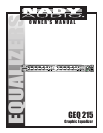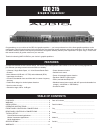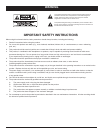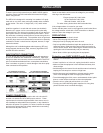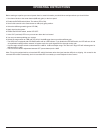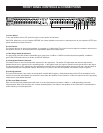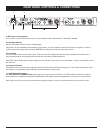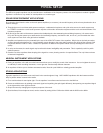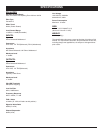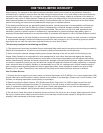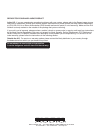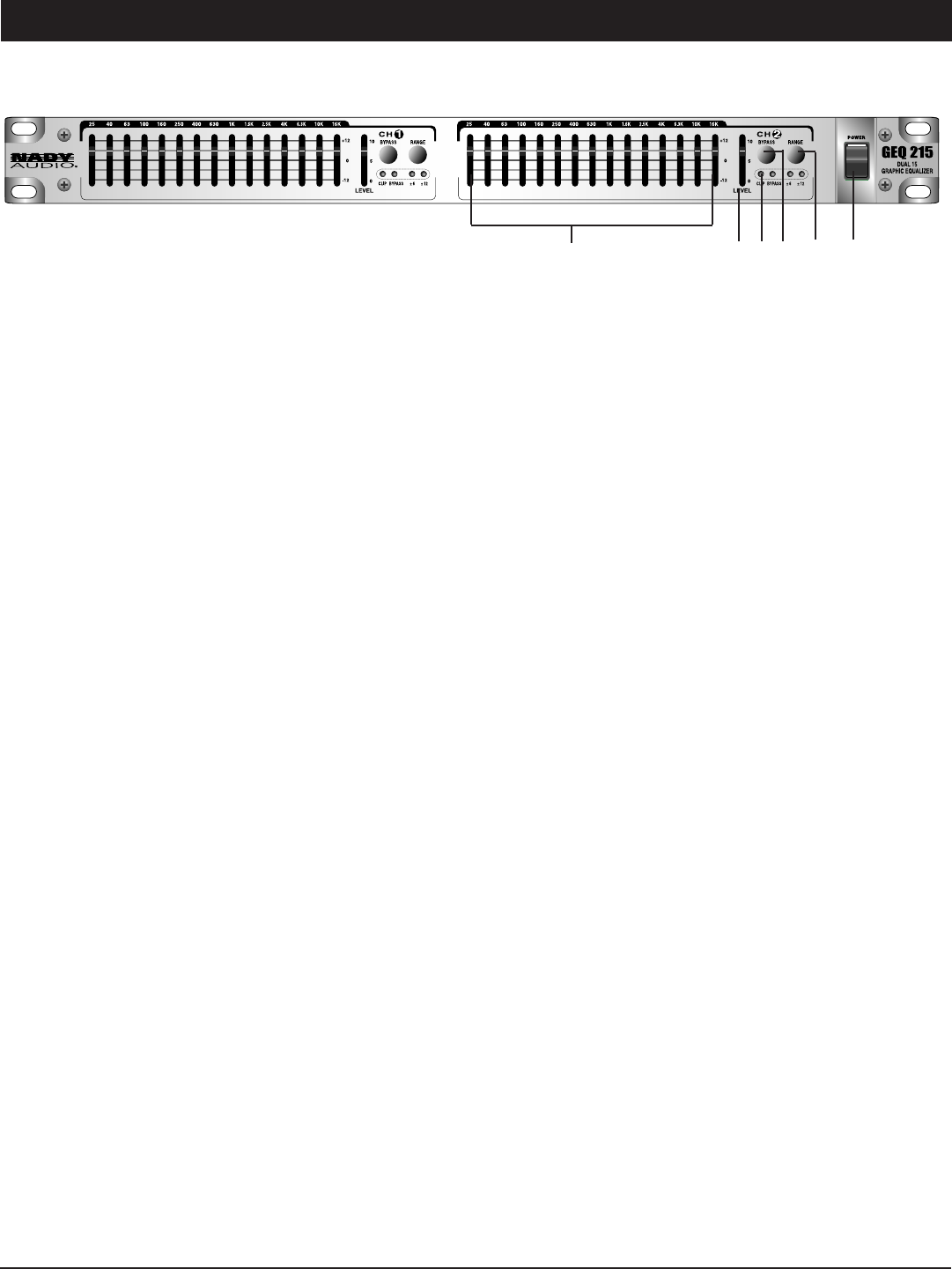
FRONT PANEL CONTROLS & CONNECTIONS
7
1. Power Switch
To turn the equalizer ON or OFF, press the upper or lower portion of this button.
CAUTION: Always turn on your equalizer BEFORE your power ampliers are turned on, and always turn off your equalizer AFTER your
power ampliers have been turned off.
2. Level Control
This controls the level of signal to the equalizer. It is capable of +/- 6dB of gain.This control is used to adjust for variation in input level to
the equalizer channel, or to compensate for the equalization applied to the input signal.
3. Filter Range Switch & Indicators
The gain range of the lter sliders is switchable (as a group) from +/-6dB to +/-12dB for maximum boost/cut capability. At 6dB the
green LED will illuminate and at 12 dB the red LED will illuminate.
4. In/Out Bypass Switch & Indicator
This switch inserts or removes the equalizer channel from the signal path. The amber LED lights when the switch is depressed to
indicate that the unit or channel is in the equalizing mode. In the bypass mode, the signal is routed from the input directly to the output.
The bypass function is FET switched to prevent switching transients when inserting the equalizer into the circuit path. Use this switch to
compare equalized and unequalized material. When there is no power to the unit, the equalizer automatically reverts to bypass.
5. Peak/Clip Indicator
This red LED illuminates if any section of the equalizer is within 5dB of clipping. Occasional blinking of this LED is acceptable, but if it
remains on more than intermittently you should turn down either the equalizer’s level controls or reduce the output level of the preceding
component to avoid audible distortion.
6. Filter Level Slider Controls
Each one of these linear potentiometers will boost or cut its noted frequency by either +/-6dB or +/-12dB depending on the lter
range selected. When all of the sliders are in center detented position, the output of the equalizer is at. Each slider is marked with the
center frequency of its band pass lter.
52 4
1
6
3



